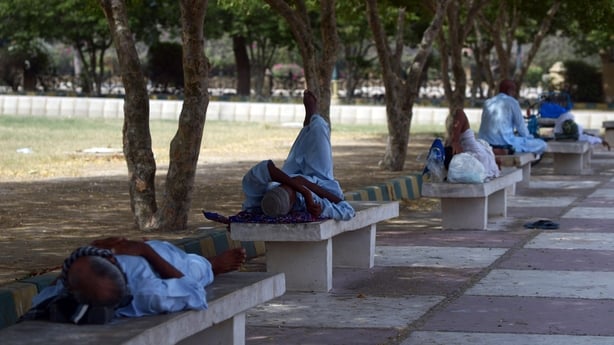Nearly 700 people have now died from a three-day heatwave in southern Pakistan, according to officials.
Medics are battling to treat victims after a state of emergency was declared in hospitals.
"The number of people who have died in the heatwave has now reached 692", said Saeed Mangnejo, a senior provincial health official.
The government has called in the army to help tackle widespread heatstroke in Karachi.
Doctors say most of those who have died succumbed to heatstroke.
One of Karachi's biggest public hospitals said all its beds were full, with more than 200 people dying there of dehydration or heat exhaustion.
Pakistan's Met Office said temperatures hit 43C in Karachi on Sunday and 49C in the southwestern city of Turbat, close to the Iranian border.
The Islamic fasting month of Ramadan, during which devout Muslims abstain from all food and drink during daylight hours, began on Friday, coinciding with what is usually the hottest time of year in Pakistan.

National Disaster Management (NDMA) spokesman Ahmed Kamal told AFP the government had asked the army and paramilitary Rangers to help relief efforts which will include setting up heatstroke treatment centres around the city.
Coping with the scorching heat has been made harder by the power cuts that are a daily feature of life in Pakistan.
The government of Sindh, the province where Karachi is located, has imposed a state of emergency at all hospitals, cancelling leave for doctors and other medical staff and increasing stocks of medical supplies.
Sher Shah, a veteran medical practitioner and former president of the Pakistan Medical Association, said Karachi's poor were most at risk.
In Karachi, a city of 20 million people, electricity shortages crippled the water supply system, hampering the pumping of millions of gallons of water to consumers, the state-run water utility said.
The deaths come a month after neighbouring India suffered the second deadliest heatwave in its history, with more than 2,000 killed.
Hundreds of mainly poor people die at the height of summer every year in India, but this year's toll was the second highest in the country's history.

